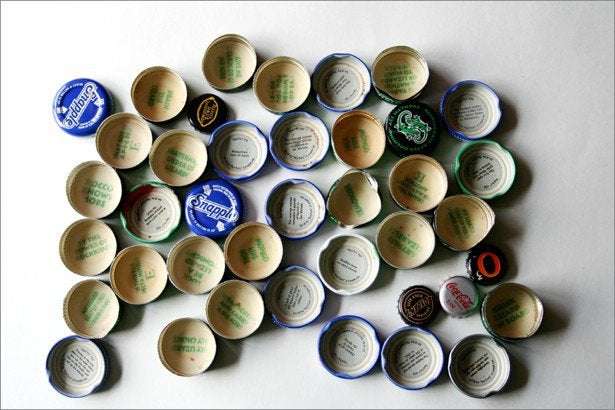Elephants actually sleep three to seven hours a night, not two (#35), according to the San Diego Zoo. The Statue of Liberty wasn't the first electric lighthouse (#179); that distinction belongs to the Souter Lighthouse, according to the UK National Trust. And the average American doesn't walk 18,000 steps a day (#89), not even close. The real tally is more like 5,116 steps, according to a recent study.
Other “Real Facts” are misleading or outdated. A mosquito doesn’t really have “47 teeth” (#50); it has a serrated proboscis — the sharp tube used to suck blood. Pennsylvania isn’t really misspelled on the Liberty Bell (#300) because “Pensylvania” was an accepted spelling in the 18th century, according to the National Park Service. And while the Mona Lisa has no eyebrows (#85), it’s not necessarily because she was painted that way. They just eroded, some art historians now believe.
Plus, it's been nearly two decades since the world's largest pumpkin weighed in at 1,061 pounds (#209) in 1996. Last year's record-setting pumpkin grew to be nearly twice as heavy, clocking in at more than a ton, according to the Giant Pumpkin Commonwealth.
“We go through a process every year of looking over the facts,” Snapple's vice president of marketing, David Falk, told me when I asked him about the discrepancy. “If a bigger pumpkin was created, we evaluate and see if that makes sense.”
Though Falk says some “Real Facts” have been retired, it's not clear from the website which ones are no longer in circulation.
There are even contradictions. Snapple claims in separate “Real Facts” that both Manhattan (#399) and Philadelphia (#662) were the first capital of the United States. (Really, the U.S. Senate explains, the first Continental Congress met in Philly and the first Congress under the U.S. Constitution met in New York.)
Murkier still are the claims that are simply unverifiable, like the vague idea that “grapes are the most popular fruit in the world,” (#371) or that the “most common name for a pet goldfish is ‘Jaws.’” (#471)
All this could seem a diabolical marketing ploy by Snapple: Present something as fact but make it just outlandish enough to spark doubt so your consumer spends that much more time engaging with your product.
But that's not what they’re doing. At least, not according to Snapple.
“They are real facts, and we have teams here that fact-check everything,” Falk told me. “We go through a pretty vigorous process.”
Pretty vigorous? Google “Did Thomas Jefferson invent hangers” (#868) and you're one click away from this top-result Monticello website: “Claims that Thomas Jefferson invented the clothes hanger are unfounded.”
Debunking the idea that San Francisco cable cars are “the only mobile national monument” (#23) was as simple as sending a single email.

SchillMcGuffin on June 14th, 2019 at 20:55 UTC »
I figured that out somewhere between "a chameleon shoots out its tongue to catch prey at speeds faster than a fighter jet" and "a duck's quack does not echo".
coopers_recorder on June 14th, 2019 at 19:48 UTC »
The swallowing three spiders a year claim never made sense to me.
modern240 on June 14th, 2019 at 19:26 UTC »
You have your facts, I have my snapple facts